Life During Wartime
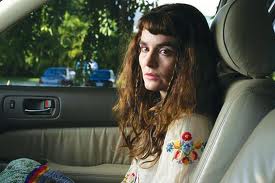 If imitation is the sincerest form of flattery, and you imitate yourself, does that mean you’re flattering yourself too? Catherine Breillat, a director often accused of taking herself too seriously while trying to punish the audience, tried to pull off this self-flattery thing with her 2002 film Sex is Comedy, which mocked her infamous 2001 film Fat Girl, especially the difficulty in shooting the controversial “underage” sex scenes. Breillat showed enough chutzpah assuming the audience would make the connection with a film that had been released sporadically only a year before (and banned in Canada), but Sex is Comedy doesn’t take itself nearly as seriously as you’d think. It reduces the harrowing and disturbing sex scenes in Fat Girl to being just another annoying day on the set for the director, trying to get the actors to cooperate. Sex is Comedy isn’t perfect, but the knocks it takes at Fat Girl are very funny.
If imitation is the sincerest form of flattery, and you imitate yourself, does that mean you’re flattering yourself too? Catherine Breillat, a director often accused of taking herself too seriously while trying to punish the audience, tried to pull off this self-flattery thing with her 2002 film Sex is Comedy, which mocked her infamous 2001 film Fat Girl, especially the difficulty in shooting the controversial “underage” sex scenes. Breillat showed enough chutzpah assuming the audience would make the connection with a film that had been released sporadically only a year before (and banned in Canada), but Sex is Comedy doesn’t take itself nearly as seriously as you’d think. It reduces the harrowing and disturbing sex scenes in Fat Girl to being just another annoying day on the set for the director, trying to get the actors to cooperate. Sex is Comedy isn’t perfect, but the knocks it takes at Fat Girl are very funny.
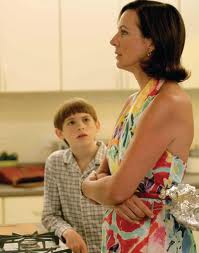 Todd Solondz’s Life During Wartime, a semi-sequel to his 1998 film Happiness, is more self-referential than a Kevin Smith film*, and relentlessly tries to parody his own material. But Solondz’s disingenuous filmic nature and incessant misanthropy (so evident in his other semi-sequel, Palindromes) works against him. Happiness was a series of slightly connected sketches, outlining cruel behavior performed by and against lonely, narcissistic New Jerseyites. It had a terrific cast, Phillip Seymour Hoffman as Allen (a schlub who makes heavy breathing sex calls to strangers), Dylan Walsh as Bill (as a family man therapist, who also happens to be a pedophile), Ben Gazzara (as a man tired of being married and just wants to be alone), Cynthia Stevenson as Trish (Bill’s wife and a passive-aggressive judgmental soccer mom), Lara Flynn Boyle as Helen (an arrogant, rich, and condescending poet). It also had one of the best opening scenes of pain and discomfort ever constructed, with Jane Adams, as Joy, breaking up with Jon Lovitz, as Andy, as he tries to give her an engraved ashtray.
Todd Solondz’s Life During Wartime, a semi-sequel to his 1998 film Happiness, is more self-referential than a Kevin Smith film*, and relentlessly tries to parody his own material. But Solondz’s disingenuous filmic nature and incessant misanthropy (so evident in his other semi-sequel, Palindromes) works against him. Happiness was a series of slightly connected sketches, outlining cruel behavior performed by and against lonely, narcissistic New Jerseyites. It had a terrific cast, Phillip Seymour Hoffman as Allen (a schlub who makes heavy breathing sex calls to strangers), Dylan Walsh as Bill (as a family man therapist, who also happens to be a pedophile), Ben Gazzara (as a man tired of being married and just wants to be alone), Cynthia Stevenson as Trish (Bill’s wife and a passive-aggressive judgmental soccer mom), Lara Flynn Boyle as Helen (an arrogant, rich, and condescending poet). It also had one of the best opening scenes of pain and discomfort ever constructed, with Jane Adams, as Joy, breaking up with Jon Lovitz, as Andy, as he tries to give her an engraved ashtray.
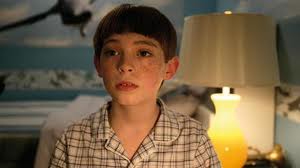 But Happiness is also hopelessly dated, as Solondz’s limitations are exacerbated by his outright contempt for his characters, turning the movie into a series of now-empty shocks. Solondz has always worked in the key of flat irony, ugly wallpaper, static camerawork, awkward longing looks, muttering, and inadvertent embarrassment. Unfortunately, Napoleon Dynamite has already ruined that style, and 12 years later, Life During Wartime, with its entirely new cast, plays like a wimpy roadshow version of Happiness, filled with understudies.
But Happiness is also hopelessly dated, as Solondz’s limitations are exacerbated by his outright contempt for his characters, turning the movie into a series of now-empty shocks. Solondz has always worked in the key of flat irony, ugly wallpaper, static camerawork, awkward longing looks, muttering, and inadvertent embarrassment. Unfortunately, Napoleon Dynamite has already ruined that style, and 12 years later, Life During Wartime, with its entirely new cast, plays like a wimpy roadshow version of Happiness, filled with understudies.
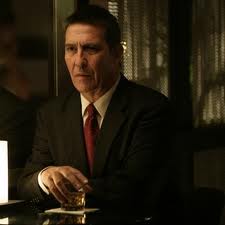 Whether he meant Life During Wartime as a parody is unclear, but all of the replacement actors seem to be doing impressions of the original performances, except he adds some sort of visual or aural eyesore, whether it be Shirley Henderson’s child-like baby doll voice (think Bernadette Peters huffing helium) as Joy or Ally Sheedy, as Trish, and her ridiculous hair. Sheedy’s acting is especially distracting because she nails down the grating cadence that Lara Flynn Boyle had, but brings nothing else to the role, so Trish isn’t even amusingly atrocious.
Whether he meant Life During Wartime as a parody is unclear, but all of the replacement actors seem to be doing impressions of the original performances, except he adds some sort of visual or aural eyesore, whether it be Shirley Henderson’s child-like baby doll voice (think Bernadette Peters huffing helium) as Joy or Ally Sheedy, as Trish, and her ridiculous hair. Sheedy’s acting is especially distracting because she nails down the grating cadence that Lara Flynn Boyle had, but brings nothing else to the role, so Trish isn’t even amusingly atrocious.
The only actor who avoids the caramelized tone (seriously, all of the actors seem to be moving in slow motion to make sure we get the jokes and references) is Charlotte Rampling, playing a ridiculous theatrical barfly who throws herself at Bill (played by Ciarán Hinds, with an R. Lee Ermey look and haircut). It’s not that Rampling gives a good performance, she chews scenery and her silly, bitter dialogue is just as arch as the rest of the script (“married, alone, same thing”). But her character was not in Happiness so she’s not tied to anything and she briefly lends the film her energy, even if once again, Solondz has to give her an over-the-top wig to show how above it he is.
 And it’s not that Solondz stops at bad hair and nudge-nudge** allusions to Happiness to embarrass his characters. From his first film, Fear, Anxiety, and Depression, and every film since, Solondz has shown his affinity for musical kitsch. In each film he has characters badly singing some sort of empty pop song and totally meaning it. In the case of Life During Wartime, he has Trish’s young daughter taking Karaoke lessons (yeah, Todd, we get it, they’re middle class idiots who throw away their money), and singing it to a room full of politely cringing guests. Solondz can’t let his characters have one moment of irony-free peace; even something as potentially introspective as Bill arriving at his family’s empty house, so he can see what he’s thrown away is marred by having the camera linger on ridiculous and goofy photos of each family member up on the wall, organized as if they were part of the opening credits to The Brady Bunch.
And it’s not that Solondz stops at bad hair and nudge-nudge** allusions to Happiness to embarrass his characters. From his first film, Fear, Anxiety, and Depression, and every film since, Solondz has shown his affinity for musical kitsch. In each film he has characters badly singing some sort of empty pop song and totally meaning it. In the case of Life During Wartime, he has Trish’s young daughter taking Karaoke lessons (yeah, Todd, we get it, they’re middle class idiots who throw away their money), and singing it to a room full of politely cringing guests. Solondz can’t let his characters have one moment of irony-free peace; even something as potentially introspective as Bill arriving at his family’s empty house, so he can see what he’s thrown away is marred by having the camera linger on ridiculous and goofy photos of each family member up on the wall, organized as if they were part of the opening credits to The Brady Bunch.
I’m not sure what Solondz is trying to say at all. Are we supposed to feel bad for Bill that his family has moved on, or is he better off without them, because they’re so classless? Is it supposed to be funny that he juxtaposes Bill’s sadness with opera music? Is the portrayal of Mark Weiner, who played Dawn’s brother in Welcome to the Dollhouse and Palindromes, a joke about miserable nerds? Why does he have rubbery makeup that makes him look like his face is a cheap Halloween costume?
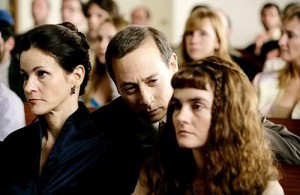 At least when Bill tries to intervene in his older son’s life and we meet the kid’s college friends (“child molestation is so done”) their flippant cynicism is at the minimum some sort of palpable attitude, as opposed to all of the walking dead that populate the film. I’m sure that by having the characters constantly talk about forgiveness, Solondz meant to insert a legitimate dramatic theme amongst the relentless mocking and pity. But it doesn’t look like he means it, as Life During Wartime is so repetitive, dull, and faux-outrageous, that not one moment avoids complete condescension and arrogance. The fact that there isn’t a character in every scene throwing feces at the other characters, acting as a Solondz surrogate, seems like a rather dishonest omission.
At least when Bill tries to intervene in his older son’s life and we meet the kid’s college friends (“child molestation is so done”) their flippant cynicism is at the minimum some sort of palpable attitude, as opposed to all of the walking dead that populate the film. I’m sure that by having the characters constantly talk about forgiveness, Solondz meant to insert a legitimate dramatic theme amongst the relentless mocking and pity. But it doesn’t look like he means it, as Life During Wartime is so repetitive, dull, and faux-outrageous, that not one moment avoids complete condescension and arrogance. The fact that there isn’t a character in every scene throwing feces at the other characters, acting as a Solondz surrogate, seems like a rather dishonest omission.
* An alternate title for Life During Wartime might be And You Thought Jay and Silent Bob Strike Back Was Self Indulgent?
** Solondz repeats the opening break-up scene from Happiness, this time having Joy mention that she’s feeling déjà vu. He also buries the legitimately funny punchline by hiring an actor to play Allen (now married to Joy) who is utterly marble-mouthed. The scene has no other point to make other than to lay the groundwork for one of Solondz’s apparent pet peeves; Waiters are annoying interrupters and only come to your table to ruin an emotional confession.



